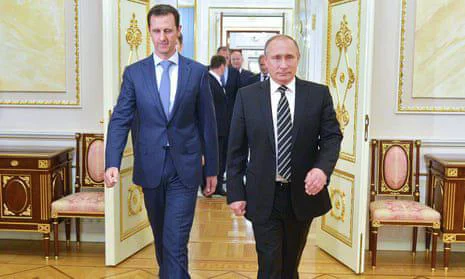In a stunning and alarming development, President Bashar al-Assad has stepped down and fled Syria, leaving a power vacuum that has been quickly exploited by Al-Qaeda-linked factions. The terrorist group, long entrenched in the chaos of Syria’s civil war, is reportedly consolidating control over key regions, raising fears of a full-scale takeover.
Russian President Vladimir Putin, through a statement by the Foreign Ministry, reacted with grave concern to this turn of events. While Russia did not participate in the negotiations that led to Assad’s resignation, Moscow strongly condemned the rise of extremist elements, warning of the catastrophic consequences for Syria and the wider region if terrorism is allowed to thrive unchecked.
“This is a critical moment for Syria,” the statement read. “We call on all parties to reject violence and work toward a political solution that respects the diverse ethno-confessional composition of Syrian society. The Russian Federation will not stand idly by as terrorists attempt to destabilize the region further.”
The Russian Foreign Ministry reaffirmed its support for United Nations Security Council Resolution 2254, which outlines a roadmap for a political transition in Syria, and called on the international community to unite against the threat posed by extremist groups. Moscow also backed the initiative by UN Special Envoy Geir Pedersen to convene urgent inter-Syrian negotiations in Geneva, stressing the need for an inclusive and swift political solution.
Meanwhile, Russian military bases in Syria have been placed on high alert. The Kremlin assured that all necessary measures are being taken to protect Russian personnel and assets, with no immediate threat reported. However, the rapid territorial gains by Al-Qaeda-linked groups underscore the precariousness of the situation.
The ousting of Assad marks a critical juncture in Syria’s history. What was once seen as a step toward peace now threatens to spiral into a deeper crisis, with terrorist factions filling the leadership void. The risk of Syria becoming a new hub for global terrorism looms large, prompting calls for urgent international intervention.
President Putin’s response reflects Russia’s strategic interest in Syria, where it has invested heavily in combating terrorism and supporting Assad’s government. The Kremlin is now navigating the dual challenge of maintaining stability in the region while countering the growing influence of extremist groups.
This development has left the international community at a crossroads. Will global powers unite to contain this threat, or will Syria descend further into chaos, becoming a breeding ground for terror that spills across borders? As the world watches, the decisions made in the coming days will shape the future of the Middle East.
Tags
International

